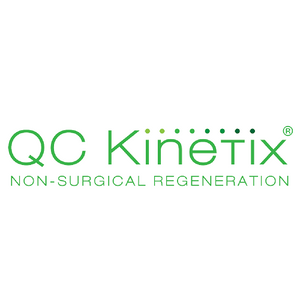Rethinking Joint Pain Treatment
For years, the default response to chronic joint pain was surgery or prescription drugs. Whether it was knee replacement, corticosteroid injections, or ongoing painkillers, these options often carried risks, long recovery periods, or only temporary relief. Today, more people are asking a critical question: Are there non-surgical alternatives for joint pain that actually work?
The answer is yes—and the science supporting these alternatives is growing. Natural supplements, regenerative medicine, lifestyle changes, and physical therapy are now part of a broader movement focused on long-term healing rather than quick fixes. In addition, a variety of nonsurgical treatment options and nonsurgical treatments are available to help manage pain, reduce inflammation, and restore mobility without the need for invasive surgery.
These approaches are designed to manage pain at its source, reduce inflammation, and support the body’s own healing abilities—all without going under the knife.
The Problem with Surgery-First Approaches
Joint surgery can be life-changing in some cases, but it’s not without downsides:
-
Lengthy recovery times
-
Potential complications and infections
-
Scar tissue that can limit motion
-
High costs and inconsistent results
-
For example, knee replacement and other joint replacement surgery procedures are considered invasive treatments.
In many cases, patients turn to surgery without exploring safer, less invasive alternatives first. Invasive treatments like joint replacement and other surgical interventions are often considered only after nonsurgical options have been exhausted.
That’s why non-surgical joint pain relief has become a critical area of interest—especially for those who want to maintain an active lifestyle without the risks of major medical procedures.

Understanding Knee Pain and Its Causes
Knee pain is one of the most common joint complaints, affecting people of all ages and activity levels. The knee joint is a complex structure made up of bones, protective cartilage, ligaments, and tendons, all working together to provide stability and movement. Because of this complexity, the knee is particularly vulnerable to a range of issues that can lead to pain and inflammation.
Common causes of knee pain include joint inflammation from conditions like rheumatoid arthritis, as well as injuries to the tendons or ligaments that support the knee. Osteoarthritis, a form of joint degeneration, is another frequent culprit, especially in older adults. Sometimes, pain in the knee joint can even be referred from other areas, such as the hip or foot, making diagnosis more challenging.
If you’re experiencing persistent knee pain, it’s important to seek guidance from an orthopedic doctor or a physical therapist. These professionals can assess the underlying cause—whether it’s due to rheumatoid arthritis, tendon injuries, or another issue—and recommend a tailored treatment plan to address your specific needs and restore joint function.
What Are Non-Surgical Alternatives?
Non-surgical treatments for joint pain focus on reducing inflammation, supporting joint structure, and improving mobility naturally. These nonsurgical treatment options may include:
-
Physical therapy and strength training
-
Weight management and low-impact exercise
-
Regenerative medicine (e.g., PRP or biologic injections)
-
Nutritional support and lifestyle changes
-
Joint injections (such as corticosteroid or hyaluronic acid)
-
Over-the-counter medications
Minimally invasive procedures, such as certain injections or therapies, are also available as nonsurgical treatments to relieve pain and improve joint function.
At the core of these nonsurgical treatment options is the concept of relieving joint pain and supporting the body’s natural healing process—giving joints the nutrients and care they need to repair and perform.
Why Natural Supplements Are a Key Alternative
Joint pain often stems from inflammation and cartilage breakdown. Natural joint supplements can combat these issues with ingredients that promote joint health from the inside out, especially those known for their anti inflammatory properties. A high-quality, physician-formulated supplement can:
-
Reduce inflammation without side effects
-
Support cartilage repair and cushioning
-
Improve joint mobility and flexibility
-
Delay or prevent the need for surgery
This is exactly the philosophy behind QC Joint & Bone Health™, a daily supplement created by the doctors at QC Kinetix®.

QC Joint & Bone Health™: A Non-Surgical Approach to Joint Relief
Backed by one of the nation’s leading regenerative medicine providers, QC Joint & Bone Health™ is designed to give people a safe, effective, and accessible way to manage joint pain without surgery. The supplement was developed with input from medical doctors who have helped thousands of patients avoid surgery through biologic therapies.
What’s Inside?
Each capsule contains a precise blend of ingredients clinically shown to support joint health:
-
Curcumin (from turmeric) – A powerful anti-inflammatory that blocks enzymes linked to pain and swelling.
-
Boswellia serrata – Reduces joint inflammation and supports flexibility.
-
Collagen Type II – Helps rebuild and protect cartilage for smoother movement.
-
Boron – A trace mineral that regulates bone and joint metabolism while controlling inflammatory enzymes.
This synergistic formula supports pain relief, flexibility, and long-term joint integrity—without relying on injections or invasive procedures.
How It Works
Joint pain is often caused by damage to cartilage and inflammation in connective tissue. QC Joint & Bone Health™ works in four primary ways:
-
Reduces Inflammation
Curcumin and Boswellia help block pathways that trigger swelling and discomfort. -
Supports Cartilage Repair
Collagen Type II delivers the building blocks needed to restore joint cushioning. -
Strengthens Joint Tissue
Boron and collagen contribute to more resilient ligaments, tendons, and cartilage. -
Improves Mobility
With reduced inflammation and better joint support, flexibility and range of motion increase over time.
When taken daily, users often report noticeable improvements within the first month, with optimal results seen at the 90-day mark.
Who Benefits Most from Non-Surgical Joint Support?
You don’t need to wait for your joint pain to become unbearable. Non-surgical solutions are ideal for:
-
Adults with mild to moderate joint discomfort
-
Seniors hoping to stay mobile without surgery
-
Athletes recovering from overuse injuries
-
People with arthritis pain or arthritis symptoms seeking natural support, including those with inflammatory arthritis or an arthritic joint
-
Anyone with stiffness, soreness, or reduced flexibility
Physical therapists play a key role in helping individuals with autoimmune disease, such as rheumatoid arthritis, manage arthritis symptoms and maintain joint function.
Whether you’re managing chronic pain or trying to avoid future problems, natural joint support is a smart first step.
Lifestyle Modifications for Managing Joint Pain
Making simple lifestyle changes can have a significant impact on joint pain and overall joint health. One of the most effective steps is maintaining a healthy weight, as excess pounds put additional strain on weight-bearing joints like the knees and hips, increasing the risk of joint damage and pain.
Incorporating anti-inflammatory foods into your diet—such as fatty fish rich in omega-3s, turmeric, and ginger—can help reduce inflammation and alleviate pain naturally. Regular physical activity is also key; low-impact exercises like swimming, cycling, and yoga help strengthen muscles around the joints, improve mobility, and reduce stiffness without overloading the affected joints.
It’s also important to avoid repetitive stress on the joints and to take regular breaks during activities that require prolonged standing or movement. Prioritizing good sleep and managing stress through relaxation techniques, such as deep breathing or meditation, can further help reduce pain and inflammation.
By adopting these lifestyle modifications, you can reduce your reliance on pain medications, support joint health, and enhance your overall quality of life—helping you stay active and comfortable for years to come.
Regenerative Medicine and Non-Surgical Therapies
In addition to supplementation, many people are also turning to regenerative medicine techniques such as:
-
Platelet-rich plasma (PRP) therapy – PRP contains growth factors in platelets that promote healing, reduce inflammation, and support tissue regeneration.
-
Biologic injections
-
Stem cell-derived treatments
When combined with supplements like QC Joint & Bone Health™, the result is a powerful, comprehensive approach to joint wellness.
For autoimmune or inflammatory arthritis, disease modifying antirheumatic drugs (DMARDs) target the immune system to control symptoms and slow disease progression.
These non-surgical therapies provide effective alternatives to orthopedic surgery, offering significant relief with fewer risks and shorter recovery times.
Managing Chronic Joint Pain
Chronic joint pain can be challenging, but a comprehensive, non-surgical approach can make a significant difference in managing symptoms and improving daily function. Nonsteroidal anti-inflammatory drugs (NSAIDs) and corticosteroid injections are commonly used to provide temporary relief from pain and inflammation in the affected joint. However, because long-term use of these medications can lead to side effects, many people explore additional non surgical treatment options.
Innovative therapies like platelet-rich plasma (PRP) therapy and hyaluronic acid injections are gaining popularity for their ability to reduce pain and promote healing. PRP therapy uses your own blood platelets, concentrated and injected into the affected joint, to stimulate tissue repair and reduce inflammation. Hyaluronic acid injections help restore the natural cushioning and lubrication in the joint, making movement smoother and less painful.
Physical therapy remains a cornerstone of chronic joint pain management. Working with a physical therapist, you can benefit from manual therapy techniques and targeted exercises that strengthen muscles, improve joint stability, and enhance mobility. Regenerative medicine approaches, such as stem cell therapy, may also be considered for certain cases to encourage tissue regeneration and long-term pain reduction.
By collaborating with an orthopedic doctor or physical therapist, you can develop a personalized plan that combines these non surgical treatments, lifestyle modifications, and alternative therapies—helping you manage chronic joint pain, reduce reliance on pain medications, and improve your overall quality of life.
Frequently Asked Questions
What are non-surgical alternatives for joint pain?
Non-surgical options include anti-inflammatory supplements, physical therapy, regenerative medicine, weight management, and lifestyle changes. These approaches reduce pain, support healing, and help avoid invasive procedures.
Can supplements really help me avoid joint surgery?
In many cases, yes. When used consistently, physician-formulated supplements like QC Joint & Bone Health™ can reduce inflammation, support joint structure, and significantly improve comfort and mobility—helping many users delay or avoid surgery altogether.
How long before I see results from QC Joint & Bone Health?
Most users begin noticing reduced stiffness and discomfort within 2–4 weeks. Full benefits typically emerge around 8–12 weeks with consistent use. As with any natural approach, results vary by individual.
Are natural joint supplements safe for long-term use?
Yes. QC Joint & Bone Health™ is manufactured in a GMP-certified, FDA-registered facility and contains no artificial sweeteners, gluten, soy, or dairy. It's designed for daily use with minimal risk of side effects.
What makes QC Joint & Bone Health different from other supplements?
QC Joint & Bone Health™ is backed by the clinical team at QC Kinetix® and contains a potent, research-supported blend of ingredients. It’s designed to deliver deep, lasting joint support—not just temporary relief.
Non-Surgical Alternatives for Joint Pain Conclusion
If you’re searching for non-surgical alternatives for joint pain, don’t overlook the power of targeted nutrition and natural support. Surgery isn’t the only solution—nor should it be the first step. With the right daily supplement, your body can reduce inflammation, repair damaged cartilage, and maintain better mobility naturally.
QC Joint & Bone Health™ offers a clinically designed path to stronger, more flexible joints without the cost, downtime, or risk of surgery. Developed by medical professionals, this supplement works in harmony with your body to restore comfort and get you moving again—on your terms.



